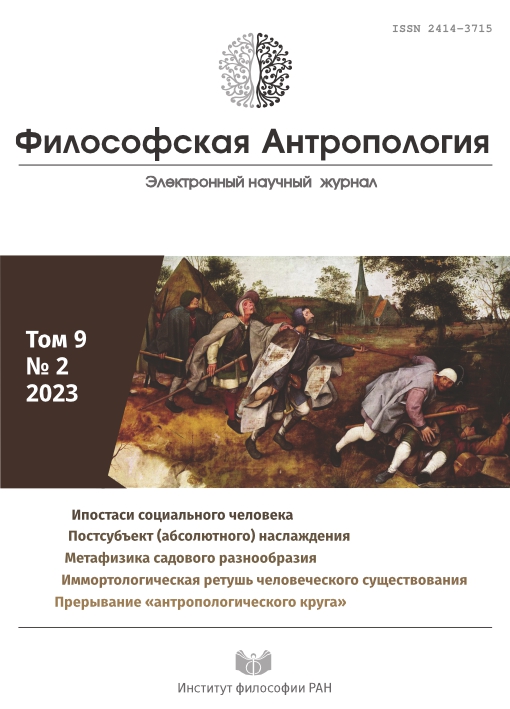Mounier Emmanuel
DOI:
https://doi.org/10.21146/2414-3715-2023-9-2-198-224Keywords:
French personalism, E. Mounier, the spiritual world, personality, subjectivity, interiority, transcension, art, superbeing, theology of loveAbstract
The article is devoted to the work of Emmanuel Mounier (1905–1950), the founder and leading theorist of the philosophy of French personalism. The philosopher sees the purpose of his teaching in finding a way out of a deep civilizational crisis, in which, in his opinion, by the beginning of the twentieth century, human society found itself. He seeks to find ways to comprehend a qualitatively new civilization based on the effective priority of spiritual values. The central idea in the thinker's views is transcension as a fundamental property of a human personality, overcoming mechanistic connections and conditionalities and striving for "super-being". He also referred to the feeling of human community as the main characteristics of human existence: society was initially included in his definition of personality. The personalist philosopher attached special importance to art in the process of becoming a person. The ideas of personalism by E. Mounier and his associates (J. Lacroix, M. Nedonsel et al.) had a noticeable influence on the philosophical, sociological and aesthetic teachings of the twentieth century, orienting researchers to study the problems of the spiritual content of human activity, human communication, and human community. They became the theoretical basis of a number of areas of theological thought — theology of personality, theology of labor, theology of revolution, theology of liberation.

